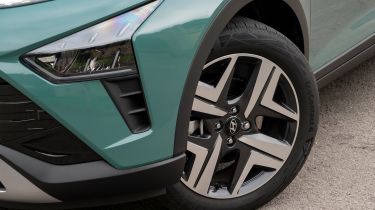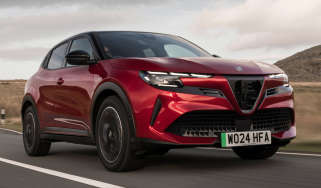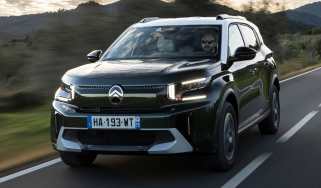Hyundai Bayon SUV - Engines, drive & performance
The Hyundai Bayon feels agile and has reasonable performance
The Hyundai i20 impressed us with its level of poise and agility, so it should be little surprise that the closely related Bayon also handles well, despite being slightly taller. First impressions are of a well-rounded small SUV that offers enough precision without feeling too uncomfortable as a result.
Controls are light - more so than in the Ford Puma - and the small steering wheel is very direct but lacking in feel. Some weight can be added to the steering by selecting the Sport mode. It doesn’t make the car much more involving to drive, so the Ford remains the enthusiasts’ choice, but once you get used to the way the Bayon drives it’s very easy to live with.
Hyundai Bayon petrol engines
Both the 99bhp and 118bhp version of the Bayon come with a six-speed manual gearbox as standard, however a seven-speed DCT automatic is also an option. The sprint from 0-62mph takes 10.7 and 10.4 seconds respectively, while the automatic gearbox adds around a second to these times. Stick with the manual, and the Bayon gets Hyundai's 'intelligent' iMT eClutch gearbox that operates without the physical link between the clutch pedal and clutch, allowing the engine to switch off while coasting for improved efficiency. The clutch pedal is light and easy to use, while the gearlever is well-weighted and has a short throw, even if it does feel rather notchy at times.
With 118bhp, the Bayon pulls smoothly and offers a flexible power band, helping it get up to speed quick enough for a small SUV. It's a strong point of the car, giving it competitive performance and decent refinement. The 99bhp engine feels fine in an i20 but can be a bit underpowered here.
Which Is Best?
Cheapest
- Name1.0 TGDi Advance 5dr
- Gearbox typeManual
- RRP£22,905
Most Economical
- Name1.0 TGDi Advance 5dr
- Gearbox typeManual
- RRP£22,905
Fastest
- Name1.0 TGDi Advance 5dr
- Gearbox typeManual
- RRP£22,905














